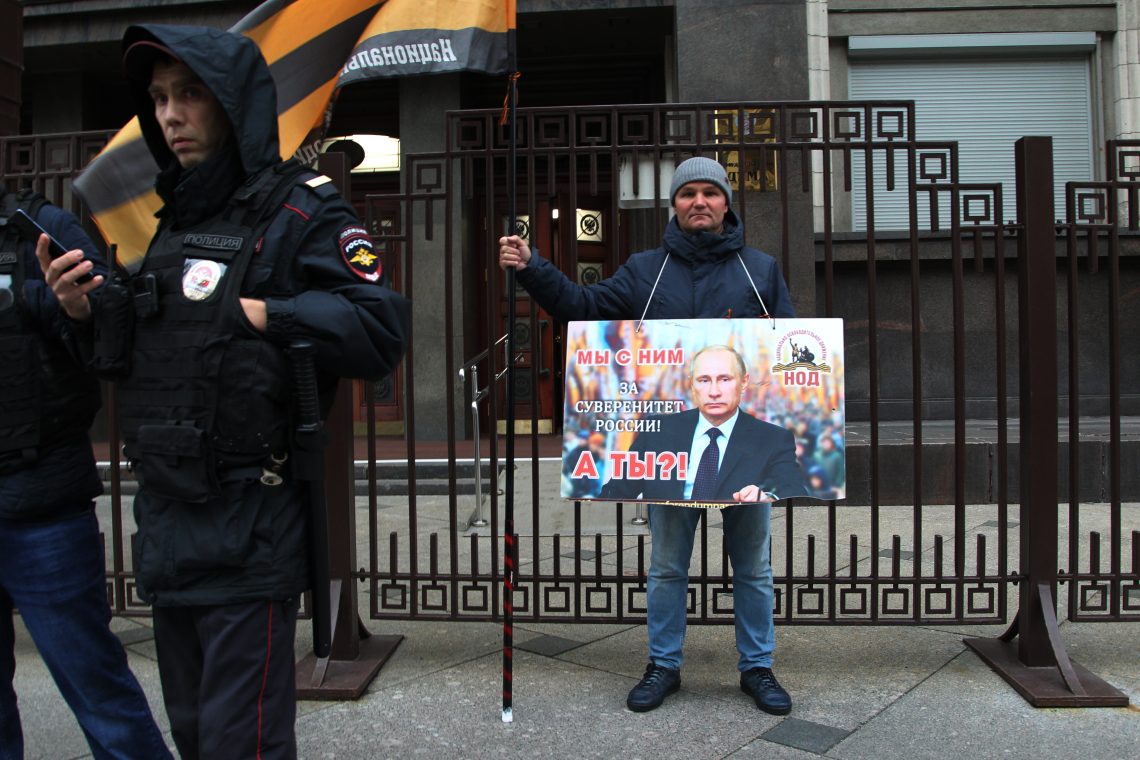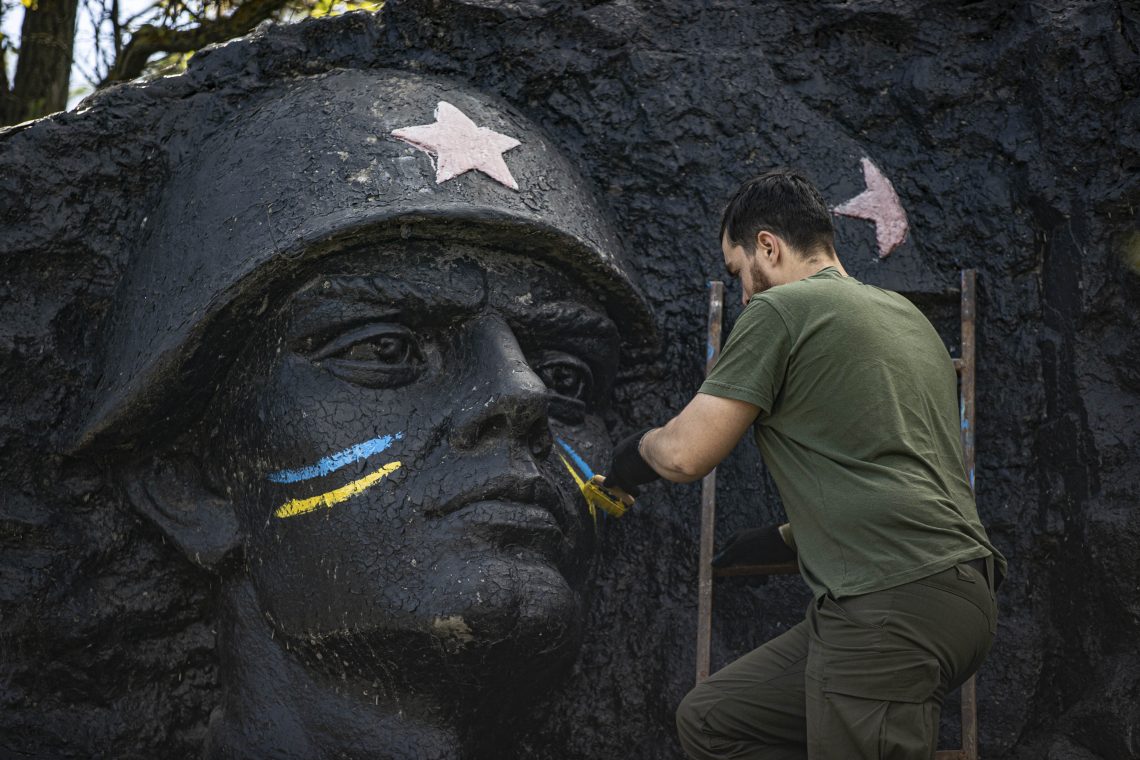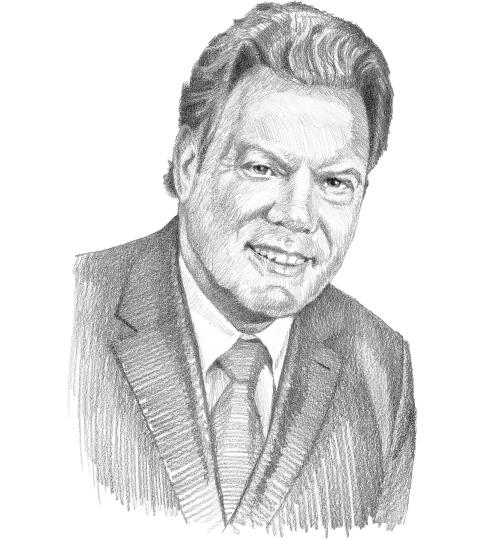Russia: Adversary or enemy?
Despite Ukraine’s success on the battlefield, the West will have to contend with Russia’s Putin — and Putinism — for years to come.

In a nutshell
- Vladimir Putin has no way forward and no face-saving retreat
- The Kremlin’s war in Ukraine will be long, brutal and destructive
- The autocrat’s days may be numbered, but Putinism will live on
By illegally annexing four Ukrainian provinces that Russia does not even fully control, Russian President Vladimir Putin has foreclosed any meaningful negotiations over an armistice or a peace treaty. He has also burned all bridges toward a face-saving retreat. The Russian constitution prohibits surrender of the country’s territory, while Ukrainian President Volodymyr Zelenskiy has signed a decree banning negotiations with the Kremlin while Mr. Putin is in charge.
Western politicians have warned not to humiliate the Russian leader, for fear of what he will do next. But is Mr. Putin more dangerous when humiliated, or when triumphant? His repeated threats to use nuclear weapons are undermining the taboo against their first use. Public warnings from Washington and London confirm serious concern among Western nuclear powers that President Putin might feel tempted to make good on these threats.
Russia adrift
Mr. Putin has ripped Russia from its European moorings and set her adrift, destination unknown. In speeches, he paints the West as the greatest threat to “Mother Russia,” intent on “robbing her” and “subverting her culture.” Russian Foreign Minister Sergei Lavrov has denounced Ukraine as “a Nazi-style totalitarian state,” and declared that the “direct involvement” of Western countries has made them parties to the conflict.
Western powers should take such words seriously. Even if they have carefully avoided being sucked too deeply into this war, they cannot avoid being parties to it, albeit indirectly. There is no doubt that Ukraine’s military performance would be quite different without Western support. So far, both sides have respected certain limits – but these limits are nowhere agreed upon. They are untested and can be shifted without notice.
A war of exhaustion
The present war will be long, brutal and destructive. Regardless of the outcome, it will leave both Ukraine and Russia weakened and in social and economic chaos. The reputation of Russia’s armed forces is in tatters, and its role as a regional hegemon is undermined.
In the West, recent advances by Ukrainian troops have been greeted with a mix of schadenfreude and euphoria. This is understandable, but premature: Nothing is more fickle than the fortunes of war. Russia has the manpower, wealth and industrial capacity to keep the war going, and retains a daunting capacity for escalation. Its limiting factors seem to be inadequate logistics, poor organization and low morale among Russian troops.
Russia’s problems go much deeper than the personality of its president.
The winter weather will hamper Ukraine’s battlefield progress, and inflict new suffering on its civilian population, leaving homes destroyed or without gas and electricity. Already, Ukraine’s gross domestic product (GDP) has fallen and may shrink by a third in 2022.
Militarily, time may favor Ukraine – provided Western support continues. On the civilian side, Russia benefits the longer the war drags on, by creating facts on the ground in occupied territories and inflicting intolerable suffering on civilian life. There is no doubt that Russia continues to destroy civilian targets to undermine Ukrainians’ will to resist.
Return of the Cold War
Looking beyond the present conflict, this war will result in a long-lasting confrontation between the West and an Asianized Russia. Wherever and whenever the fighting ends, that frontline will become a new Iron Curtain. If Russia succeeds in keeping part of its present territorial gains, that border might divide Ukraine. Neither side will recognize this line.
Reconstruction will tear both parties in opposite directions. Free rump Ukraine will be brought into the economic and security structures of Europe; neutrality would be suicide. Russia, meanwhile, will meet growing international isolation.
In the 1970s, it was gas that opened the door to East-West trade. Gas and oil remained the backbone of commerce across the Iron Curtain, providing a framework of stability and predictability. That will never return; for President Putin, ideological considerations overwhelm any material calculus. He has reduced gas deliveries to Europe and threatens to cut them altogether. He uses energy supplies as a strategic weapon, as he foreshadowed 25 years ago in his PhD thesis. The sabotage of Baltic Sea pipelines was the final blow to five decades of mutually beneficial trade. Both pipelines seem irretrievably lost.
Putinism after Putin
Russia’s problems go much deeper than the personality of its president. In Mr. Putin, one finds some elements of continuity in Russian history. A brief period of tentative liberalization after the defeat of Napoleon was met with harsh repression after the Decembrists’ failed coup in 1825. In the Soviet Union, another short era of “New Economic Policy” ended with central state planning and Stalinism. The Khrushchev Thaw was followed by Brezhnev’s ice, and Gorbachev’s perestroika and glasnost led to chaos during the Yeltsin years, followed by the jingoistic nationalism of Mr. Putin. Westerners and Slavophiles are still fighting over the future of Russia, and the Slavophiles have won again.
President Putin, age 70 and in apparent fine health, has a good chance to stay in power until 2036. There are no rivals in sight, nor an alternate power center that could challenge his position, as the Politburo did in 1964 when it ousted Nikita Khrushchev (1894–1971). The Duma is a puppet theater with all strings firmly in Mr. Putin’s hands.
Neither a military coup nor mass protests are likely. Coups can fail, as the two attempts in Russian history (1825 and 1991) both did. Two years ago, Belarusian President Alexander Lukashenko demonstrated how to deal with public protests at home (with the full support of his Russian counterpart). Mr. Putin remembers well the final act of Mikhail Gorbachev (1931–2022): First, a retreat abroad (from Afghanistan), and then collapse at home. He will go to any lengths to prevent such a fate for himself.

Even if President Putin were to relinquish power, who could succeed him? He has gathered around himself a close network of personal friends, all of them, contemporaries. Potential successors from the next generation (Dmitry Medvedev, Vyacheslav Volodin, Igor Shuvalov) are no less chauvinistic in their public speeches.
Whoever replaces Mr. Putin will have to build a new network of allegiances and personal ties. He would face the same insoluble dilemma of either sacrificing “holy Russian soil” or perpetuating a disastrous confrontation with most of the industrialized world. He would have to either accept the exceptionalism of the so-called Russkiy Mir (Russian World) doctrine or oppose a phalanx of determined ultranationalists at home.
Any successor will certainly find it difficult to step out of the giant shadow that President Putin will leave behind. A power struggle could ensue, relying on the rivalry of security services or on private armies like Yevgeny Prigozhin’s Wagner group or Ramzan Kadyrov’s Chechen fighters.
Putinism has grown deep roots in Russian society and mentality. After World War II, the reflexes of Nazi thinking endured in German society well past 1945 and is even today still present in a few minds. Putinism, strongly supported by the Russian Orthodox Church, will likewise intoxicate Russian society for a long time after his exit – as did Stalinism, which in many ways still survives. The concept of Russkiy Mir suggests a self-image of a master race, better than ordinary mortals. In today’s Russia, the loudest criticism of the conduct of the war in Ukraine has not come from moderates, but from ultranationalists, who call for full mobilization and the use of nuclear weapons.
North Korea and Kashmir beckoning
Russia is in danger of a creeping “North Koreanization,” a road to total isolation as a pariah state. That does not imply that such a Russia would be predestined to fail; how often have pundits predicted the collapse of the regime in Pyongyang? Moscow is far more stable. Nor would regime change be assured. Russia weakened and cornered might become even more assertive.
The recent hardening of both Russia’s and Ukraine’s positions could lead to a “Kashmirization” of the conflict. Since 1947, the border between Pakistan and India in Kashmir has been contested, and for 75 years both sides have faced each other in unrelenting hostility. Four wars have been fought, including a 1999 crisis that almost reached the nuclear threshold.
The challenge for Western statecraft will be to balance the containment of Russia and avenues for practical accommodation. Russia is too large, too powerful, and too economically significant to be kept in perpetual isolation. President Putin will have to go someday, but the West will have to live with a Putinized Russia for years to come.
Any successor will find it difficult to step out of the giant shadow that President Putin will leave behind.
Though the war in Ukraine may die down, it will do so only if both sides are so exhausted that they abandon hopes of making further territorial gains through military means. The conflict itself will not end; it may one day be frozen, but even then, the geopolitical facts will remain impervious to attempts to change them peacefully.
Vladimir Putin has lost all credibility, having broken a range of international legal norms and treaty obligations. If he disregarded them in the past, why should he observe them in the future? His idiosyncratic, even amateurish view of history aligns him with those that sought to revive the medieval Greater German Reich or the ancient Roman Empire. While the Kremlin has no qualms with denouncing its enemies as Nazis, Russia’s current leadership shows a disturbing likeness to fascist dictatorships of the past century. There is no conceivable common ground on which Western values and interests could meet the Russian leader’s.
The conclusion is a sobering Catch-22: to end the war, the West needs a negotiated understanding with Russia. Negotiations with Putin’s Russia are impossible. And Russia will remain under the spell of Putinism long after he has left power.
Nuclear race
The future will be more difficult than the Cold War. Containment, a new Iron Curtain, and a dangerous standoff will return, probably a fresh arms race. The last arms control agreement, New Start, has been extended until 2026. Prospects for another extension are dim, for a new deal even dimmer. This time, an arms race would not so much concern the number of warheads as the quality of new weapons systems. Accuracy, drones, armor-piercing ammunition and real-time intelligence have had a huge impact on the battlefield in Ukraine.
Meanwhile, President Putin’s repeated nuclear threats are undermining nonproliferation. Ukraine was the third-largest nuclear power in 1991, with its inventory dwarfing those of France, China and the United Kingdom. (Although it may not have been a full-fledged nuclear power, since it lacked the infrastructure to service its warheads and the intelligence or codes to actually release intercontinental ballistic missiles.) In 1994, it agreed to surrender these weapons to Russia in good faith, receiving written assurances for its security, sovereignty and territorial integrity. Moscow has flouted these commitments as well as its commitment never to use nuclear weapons against a nonnuclear state. The lesson can only be: If you have nuclear weapons, do not give them up; if you have none, get them as quickly as you can. This lesson will not be lost in Asia, particularly in Tehran.
There is no conceivable common ground on which Western values and interests could meet the Russian leader’s.
Yet one fundamental difference from the Cold War is Russia’s ideology of Russkiy Mir. The Soviet Union at least pretended to offer a universalist model of social and economic development and of political organization. It invited more than one government to imitate its example. If Russia retreats into a nationalistic myth centered on its own culture, ethnicity and orthodoxy, it will find little sympathy abroad. Moscow may also exacerbate resentment among the many minority ethnicities that make up the population of the Russian Federation.
An uncertain future
Vladimir Putin confirms the old lesson of history: Aggression abroad and repression at home come hand in hand. As the war goes disastrously wrong, he is forced to tighten the screws on his own people. In response, many are voting with their feet. Morale in Russian fighting units will not improve with the influx of several hundred thousand men drafted against their will.
As people in Russia begin to feel what war means for their lives, they will demand a greater voice. In 2024, Putin faces reelection under the new constitution. He could suspend elections due of the war, but that would mean admitting Russia is in fact at war, rather than merely taking part in a “special military operation.” If he does not, these elections may become a litmus test of his true support – resulting in more repression or in serious unrest.
The more immediate course of the present conflict remains uncertain. But a few key factors will indicate which direction it is heading, and how fast future developments will unfold.
First, the limits of Western support for Ukraine’s war aims are still unclear. It may back only a full reconquest of Ukrainian territories lost after February 24, 2022 – or tolerate the pursuit of those lost since February 2014, before Russia’s annexation of Crimea. For its part, Russia may follow through on its insistence that the West is already party to the conflict. Recent withdrawals of troops from frontiers with NATO member countries suggest that Russia is loath to drag NATO into this war.
Second, if Russia’s repeated nuclear threats do materialize, how will Western nuclear powers react? This is a question primarily for the United States, as the war in Ukraine is taking on the characteristics of a proxy war between Washington and Moscow. France has signaled a position that is not in line with what London and Washington have been saying.
Western powers will aim to make it clear to Mr. Putin that he will not be able to achieve his war aims (whatever those may be). They will look for ways to end hostilities without compromising international law or fundamental values. War has a Manichean effect; over time, fence-sitting becomes impossible when the fence is knocked down from both sides. Waffling or wriggling will come to an end.
Finally, the world must find a means to escape the frightening logic of conflict: The greater the sacrifices, the higher the obstacles to concessions. How can we overcome the mantras like, “We owe it to the dead to fight on”; “What has been ‘ours’ must remain ours forever”; “Heroes never capitulate”? War does not calculate; it operates on emotions. How can rationality be brought back?








